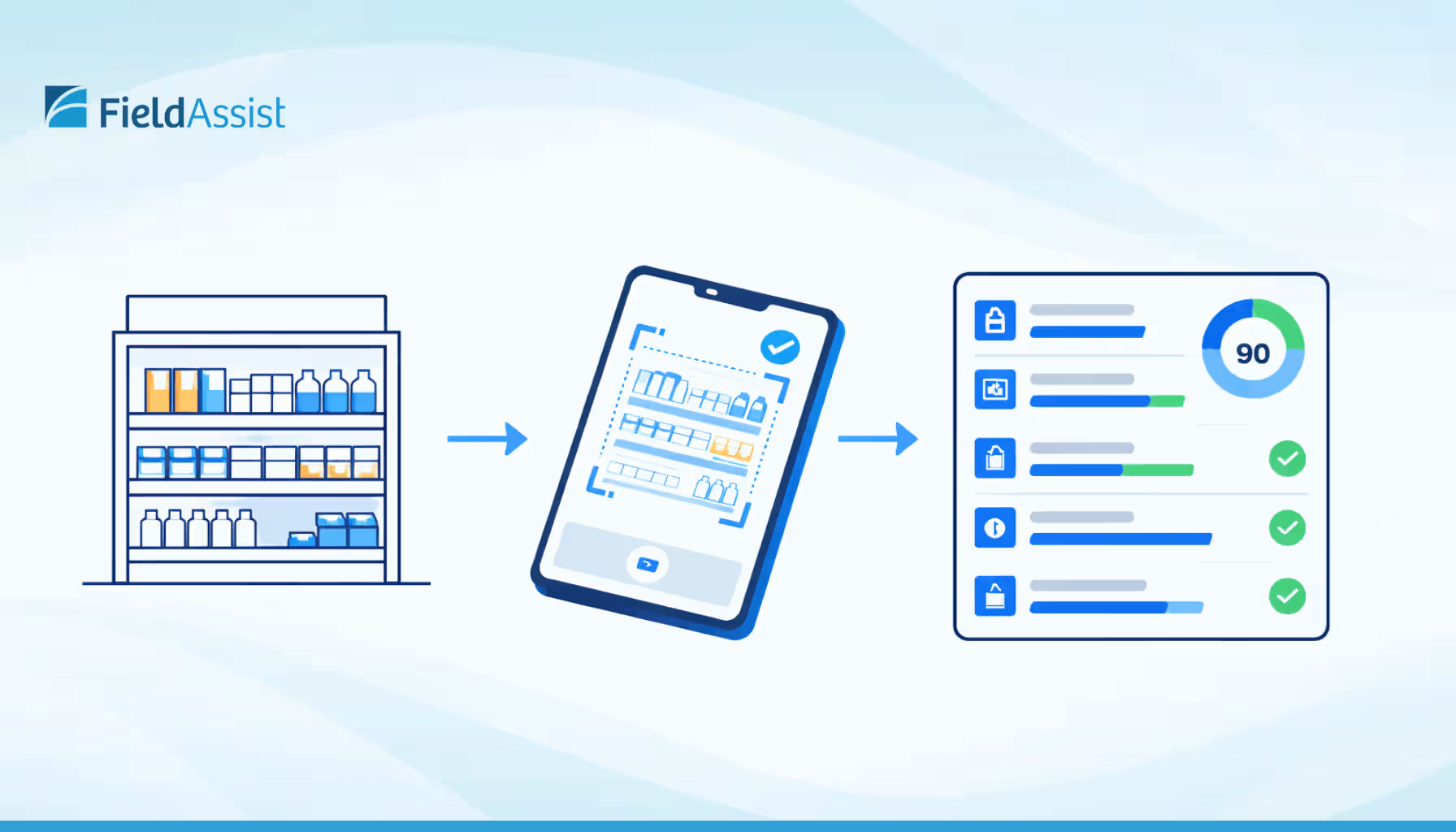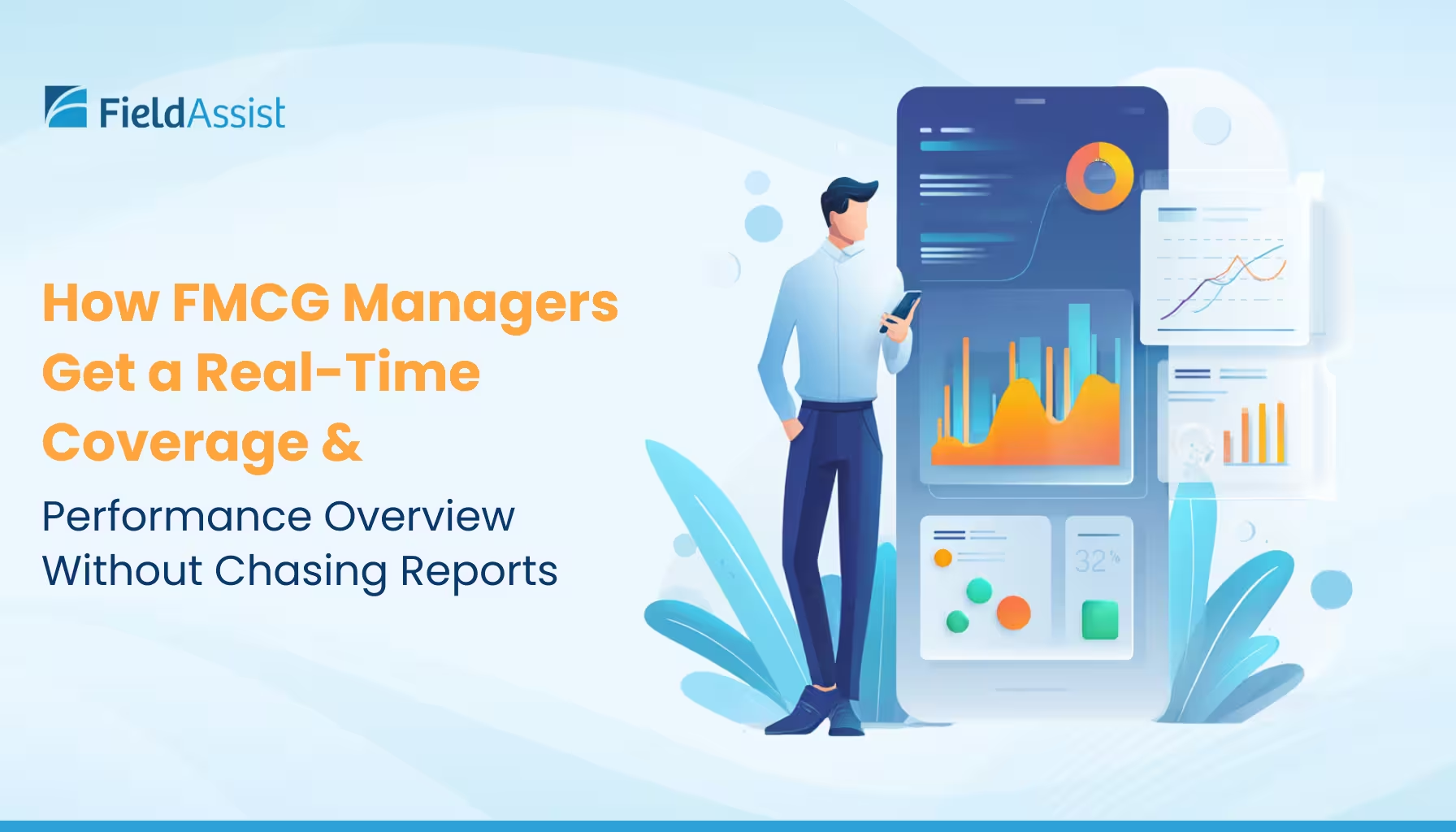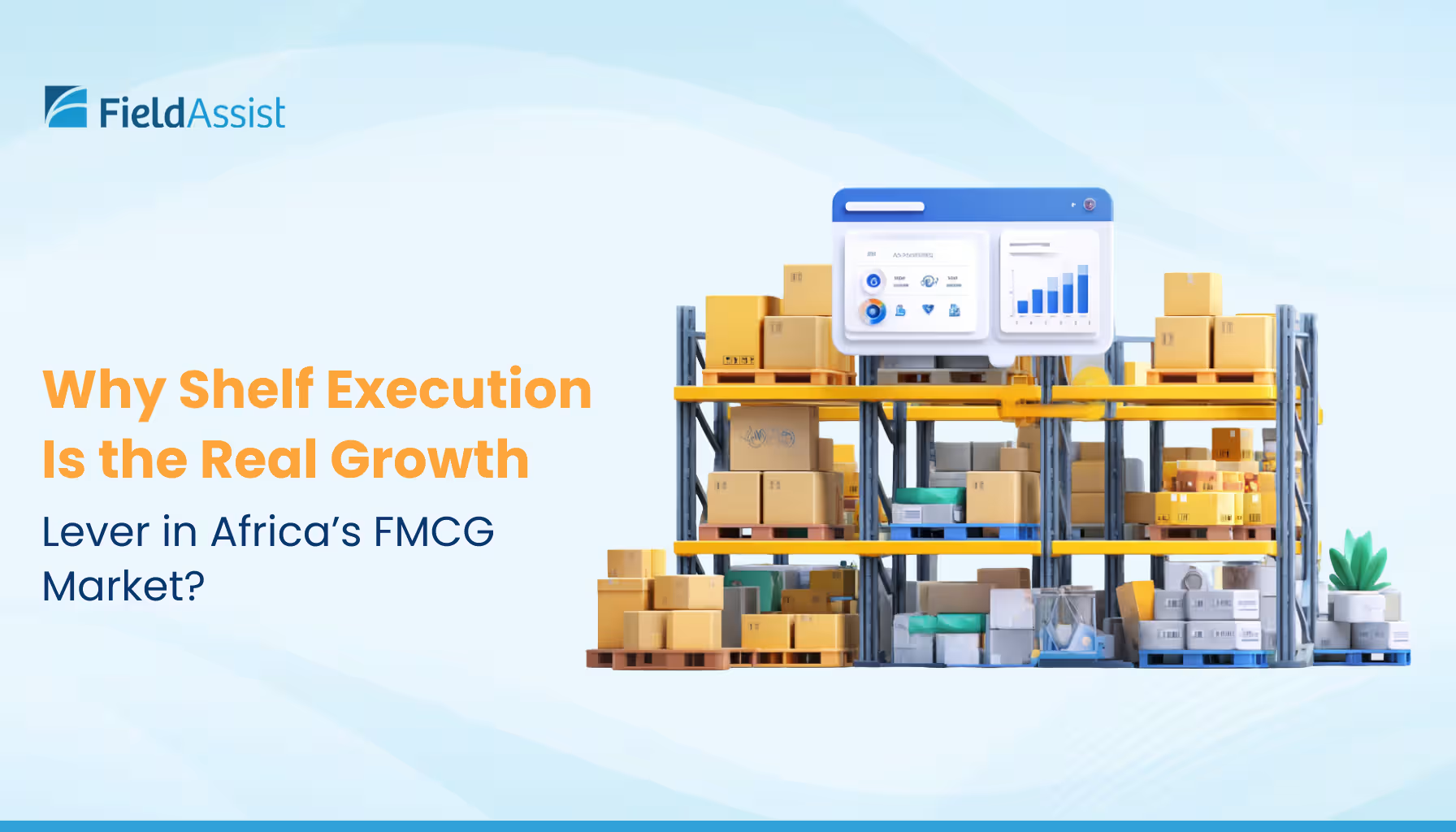9 Easy Ways A Small FMCG Business Can Win Big With SFA
Read the blog to know the benefits of SFA to fuel the journey of small FMCG business for the next level growth.

Meet Mr. Gupta, an experienced FMCG business owner who has been running his beverage brand Gulu across North India for over 15 years. With a strong distributor network and a hardworking sales team, he has built a solid market presence through BTL (below-the-line) activities and regular retailer engagements.
However, as his business scaled, so did his challenges. Mr. Gupta wanted real-time visibility into his field operations — insights into which outlets his Sales Representatives (SRs) visited, what orders were placed, and which territories had untapped potential. Relying only on anecdotal reports limited his ability to make data-driven decisions.
That’s when he discovered the power of Sales Force Automation (SFA), a solution that digitizes and automates everything from order booking and route planning to retailer engagement and sales analytics. Initially hesitant, Mr. Gupta decided to give it a try, and it completely transformed how he managed his FMCG sales operations.
1. Real-Time Sales Data at His Fingertips
With an SFA app, Mr. Gupta no longer spends hours consolidating sales reports. Every SR activity, order, and customer feedback is updated in real time. This visibility helps him take faster, informed actions and respond instantly to market insights.
2. Better Territory and Beat Coverage
The SFA software enables dynamic beat planning and fair distribution of territories. Mr. Gupta can visualize his geographical coverage, identify white spaces, and redeploy SRs to capture high-potential zones, ensuring full-market coverage and optimized reach.
3. Verified Field Visits Through GPS Tracking
Sales Force Automation software with real-time GPS tracking ensures all field visits are legitimate and logged accurately. Mr. Gupta can now supervise his entire team remotely, improving sales discipline, accountability, and communication without being on the field himself.
4. Smarter, Faster Order Booking
Every retailer interaction is digitally captured through the sales tracking app. The system provides auto-suggested orders based on purchase history and displays the complete product catalog for quick selection. This reduces manual errors and helps SRs upsell efficiently.
5. Targeted Retailer Schemes and Promotions
Through Sales Force Automation, Mr. Gupta can run zone-wise, state-wise, or outlet-based promotions in real time. His team receives instant in-app notifications about schemes, discounts, and coupons, boosting retailer engagement and loyalty.
6. Data-Driven Sales Analytics for Faster Growth
With real-time retail analytics, Mr. Gupta can forecast demand, identify sales trends, and discover new revenue opportunities. His SRs use past order data to upsell and cross-sell effectively, increasing overall sales performance.
7. Transparent Team Performance and Incentives
Every SR can now track their own performance versus assigned KPIs. This transparency motivates representatives to perform better while helping Mr. Gupta create fair incentive programs, driving productivity and ownership across his sales force.
8. Optimized Team Allocation and Follow-Ups
The sales automation system helps Mr. Gupta assign the right SR to every lead based on expertise, geography, and availability. He identifies underperformers, tracks performance metrics, and ensures efficient workload distribution across regions.
9. Quick, Insight-Driven Sales Reviews
Tedious sales review meetings are now a thing of the past. With automated reporting and smart dashboards, Mr. Gupta focuses only on execution-driven discussions. SFA software automatically handles scheduling, report generation, and sales follow-ups, allowing his team to convert estimates into actual orders faster.
What are the benefits of SFA for FMCG Businesses?
In today’s fast-paced consumer market, SFA for FMCG brands has become more than just a digital upgrade; it is a competitive necessity. Implementing a robust SFA software helps companies gain complete control and visibility over their field operations.
A well-built SFA platform for FMCG streamlines every step of the sales process from order booking and stock visibility to route planning and field performance tracking. By automating these repetitive tasks, business owners and managers can concentrate on driving strategic growth instead of getting caught up in daily operational issues.
Key benefits of SFA include:
- Real-time field visibility: Managers can view live updates on outlet visits, orders placed, and payment collections through a single SFA app dashboard.
- Higher sales productivity: With automated reporting and order tracking, sales representatives can focus more on selling and spend less time on administrative tasks.
- Error-free execution: The sales force tracker ensures data accuracy, eliminating manual entry mistakes and improving claim validations.
- Better decision making: Real-time analytics from the SFA platform for FMCG provide actionable insights into product performance, territory coverage, and retailer behavior.
- Scalability and flexibility: As the business grows, the SFA software scales effortlessly, adding new distributors, SRs, and regions without disrupting operations.
By adopting SFA for FMCG, brands can optimize sales performance, enhance efficiency, and drive sustainable growth with a single integrated solution.
Major challenges that FMCG businesses face?
Without a proper SFA platform for FMCG, brands often struggle with fragmented processes, limited visibility, and delayed decision-making. Using spreadsheets and manual reports consumes valuable time and raises the chances of data errors or loss.
When field teams operate without an SFA app, managers have no real time visibility into outlet coverage or order execution. This makes it nearly impossible to track the performance of each sales representative accurately. Retailer relationships suffer when orders are delayed, claims are mismatched, and stockouts occur due to poor coordination.
Common issues faced by FMCG companies without sales force automation software include:
- Lack of real-time data: Managers receive updates only after end-of-day summaries, delaying corrective action.
- Inefficient beat planning: Without a sales force tracker, reps may overlap territories or miss key outlets, lowering sales potential.
- Inconsistent order accuracy: Manual order capture leads to errors in quantity, price, or SKU details.
- Poor accountability: Tracking attendance, store visits, and task completion becomes guesswork.
- Limited insights: Absence of data analytics makes forecasting and performance evaluation unreliable.
Conclusion
For FMCG business owners like Mr. Gupta, adopting Sales Force Automation (SFA) is a smart step toward achieving faster growth and stronger sales control. A modern sales automation system streamlines daily operations, provides real-time visibility, and helps teams make informed decisions.
From simplifying order booking to improving field performance tracking, the right digital solution adds efficiency, transparency, and consistency to every stage of sales execution.
Ready to simplify your sales operations?







